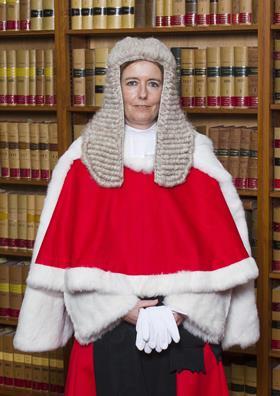Journalists will be able to report on family court proceedings for the first time as part of a new pilot in a ‘big cultural change’ to the Family Division. The hope is that the Transparency Reporting Pilot, to be conducted at three courts, will improve transparency and accountability.
In a remote briefing last night, Mrs Justice Lieven, liaison judge for the Midlands Circuit, explained the pilot to more than 100 guests. It follows president of the Family Division Sir Andrew McFarlane’s review of transparency in the family court last year.

’This is fundamentally about two things,’ Lieven said, 'promoting public confidence in the family justice system and promoting accountability.
‘I would not be giving anything away or speaking out of turn to say [there has been] quite a lot of material in the last few years that has undermined public confidence in the family divisional justice system. Because we usually conduct our business behind closed doors effectively and journalists cannot report what is said it has allowed suspicion to grow. The only cases that can be reported upon are those that go to the Court of Appeal where something goes wrong so we have an embedded bias.’
She added that journalists being unable to report on family court cases ‘has a major impact on the open justice principle’ and journalists in court would ‘improve standards.’
She added: ‘Everybody behaves better if they think journalists are reporting on them.’
Journalists are currently allowed to attend family courts but cannot report on proceedings. The transparency reporting pilot will allow reporting of certain cases. The pilot will begin on 30 January in Leeds, Carlisle, and Cardiff.
Initially, court applications and placement applications made within court proceedings will be open to reporting and, after a six-to-eight week period, private law children cases may also be reported on. Remote hearings will also fall under the transparency reporting pilot.
Adoption cases, standalone placement applications, HFEA applications, financial remedies and Family Law Act 1996/Domestic Abuse Act 2021 applications will not form part of the reporting pilot.
Reporting will be allowed only by accredited journalists and legal bloggers.
A transparency order will define what can or cannot be reported and, although a template has been made available, edits and variations are allowed to better fit individual cases. Media will need to preserve the anonymity of the child, or children, involved in proceedings but legal representatives and judges as well as the local authorities are some of the details that may be reported under the transparency order.
Lieven said she hoped the ability to report on cases would encourage journalists to attend ‘in a way they did not before.’ She added: ‘This is a big cultural change for family justice. Many of you have been used to acting behind closed doors throughout your careers so the idea that the press can report is an alien one. Some of your fears may turn out not to be true, that is why we are doing a pilot.
‘This is not about allowing voyeuristic interest. The last thing we need is to interfere with the welfare of the kids or interfering with personal or professional relationships that those kids need. This is absolutely not about naming and shaming, this is about opening up the system.’
The transparency order will also allow documents to be released to the press including skeleton arguments, case outlines and position statements.
However, cause lists will remain as they are. This is due to lengthy costs to changing the lists and delays in rolling out the pilot. Reporters will be able to find out if a case is worth reporting only if they are tipped off or choose to sit in court.
Lieven said: ‘I fully acknowledge that is not by any means perfect but that is where we are.’
Lieven, who said she did not think it would be a burden to have journalists in court and requesting skeletons and other documents, added: ‘I do not think there will be anywhere near as much press interest after that initial [first day] as some of you may fear. There may be press interest in various cases, it may be unexpected but it will not be overwhelming.’
She asked those attending for feedback once the pilot started. She added: ‘This is a brave new world as far as the family justice system is concerned.’
The profession cautiously welcomed the announcement.
A Law Society spokesperson said: 'Transparency and open justice are important to help the public understand how the law works and how decisions are made. Provided it’s done in a sensitive manner, such reporting will be a valuable tool in re-educating the public. It can also raise awareness of what the rule of law means and why it’s important.
'We are pleased to see the pilot will not allow journalists to identify families. This sensitivity is important, particularly when children are involved.'
Julian Hayes, senior partner at London firm Berris Law, said: 'I welcome this development as it affords the opportunity for the public to see how the courts operate and the issues that often arise. They will also have a better idea as the negative impact that LASPO has had on proceedings and the significant increase in litigants in person and the difficulties they face.'
This article is now closed for comment.



























4 Readers' comments